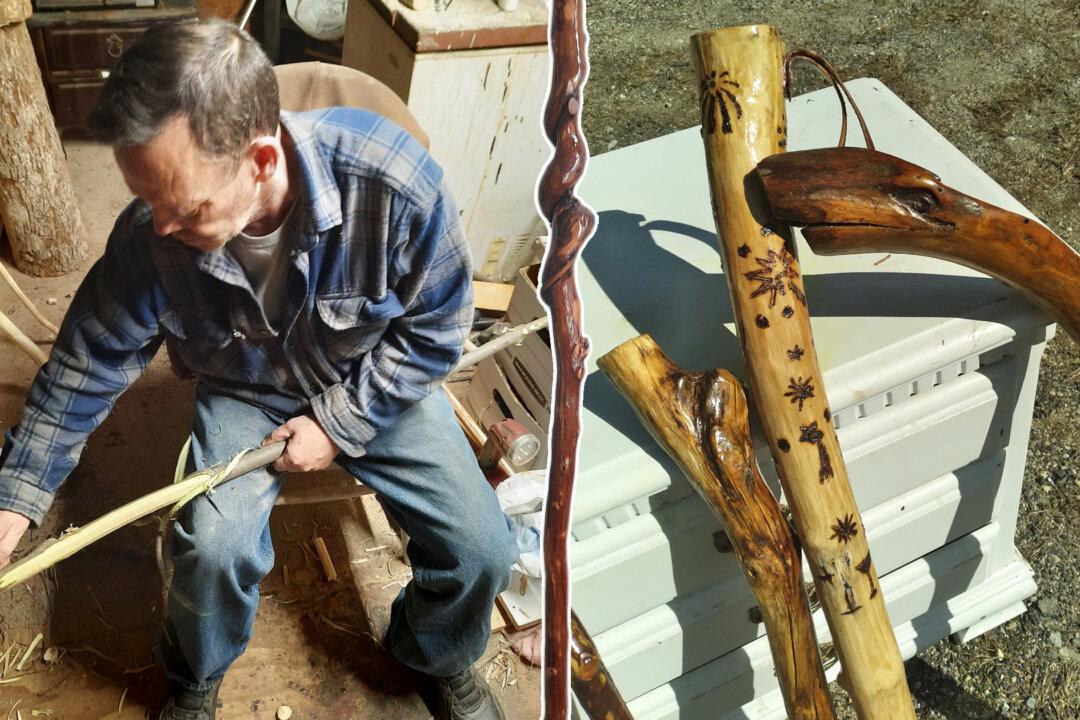A former alcoholic has found peace and focus working in nature by crafting unique, natural wooden canes and walking sticks from branches sourced from the woods behind his Maine home. He credits his craft with keeping him five years sober and counting.
Dana Frazier, 60, runs Walk With Us Woodworking alongside his grandson, Trevor Michaud, in their hometown of Poland, Maine. Originally from Massachusetts, Frazier was a confessed belligerent alcoholic for decades before finding sobriety and, a little later, a reason to stay sober.





